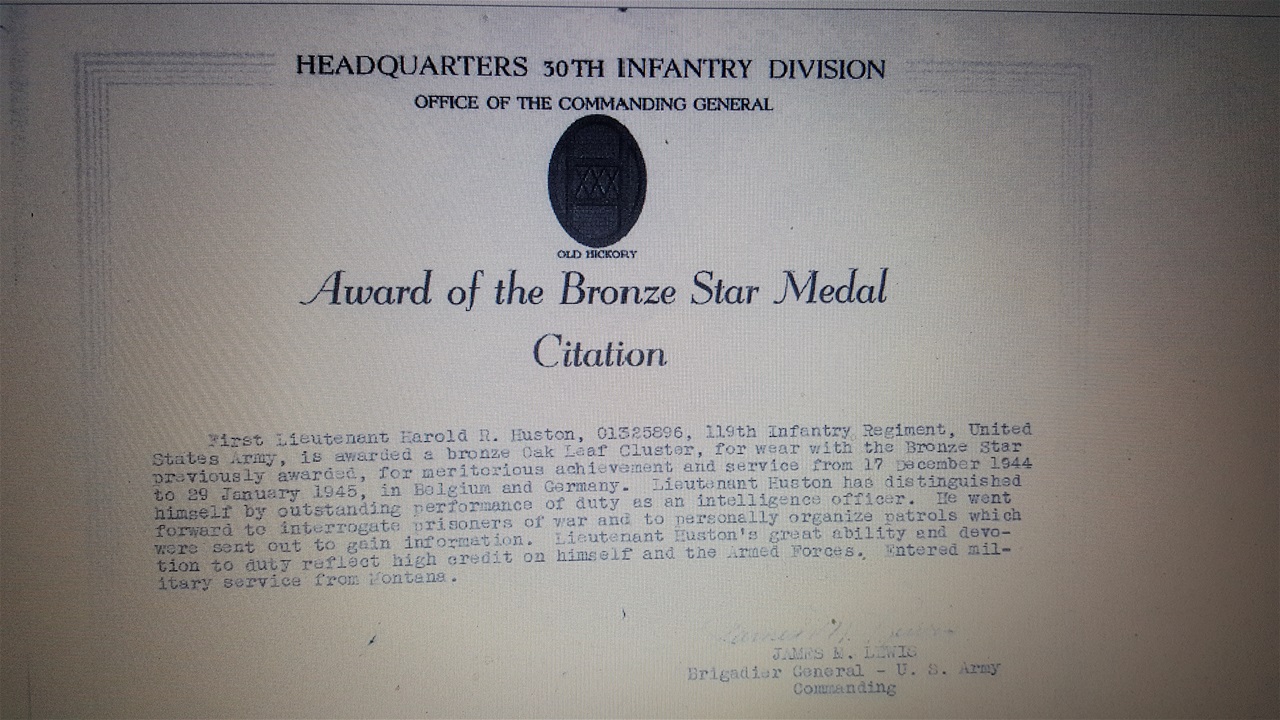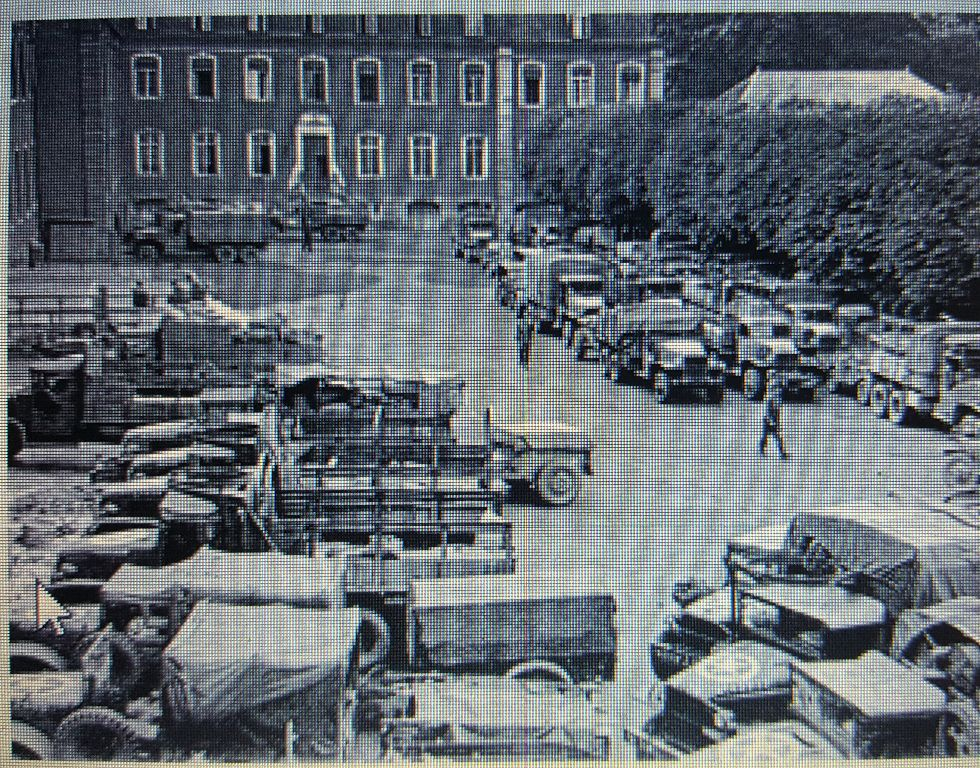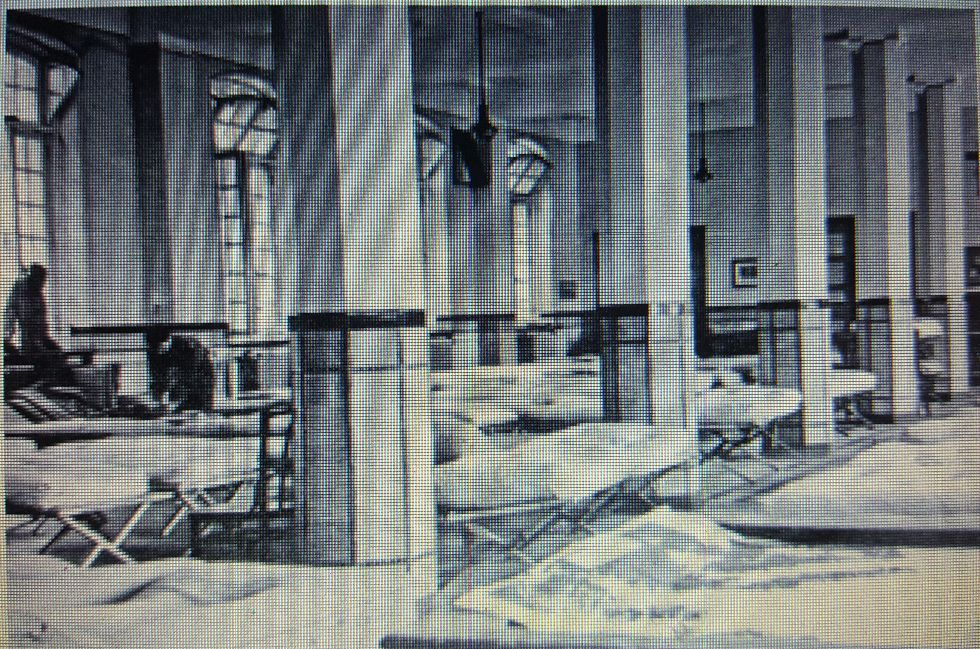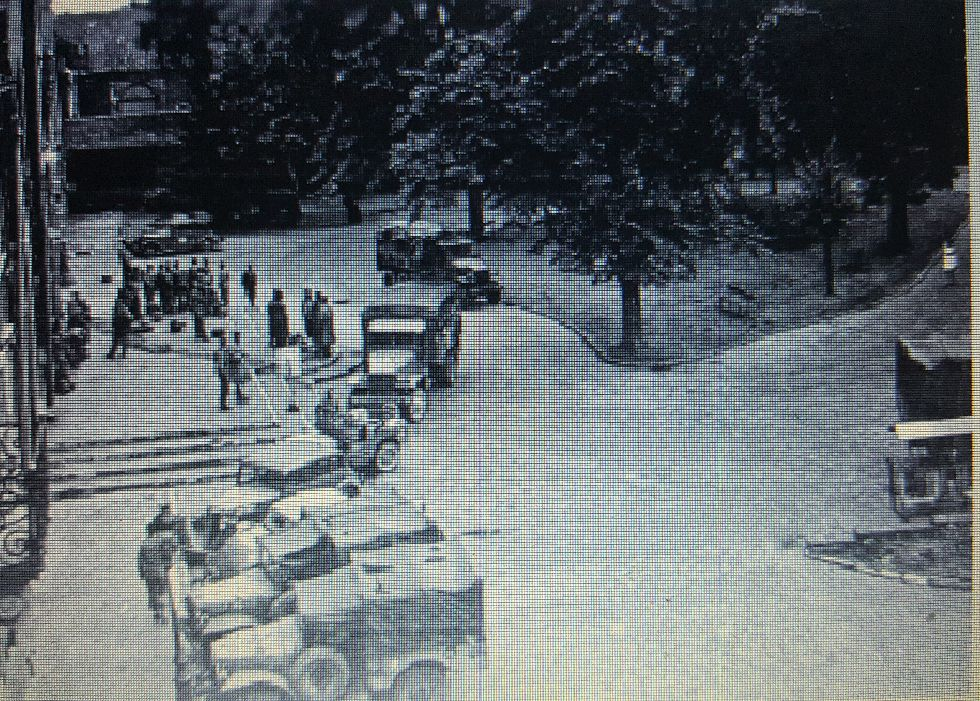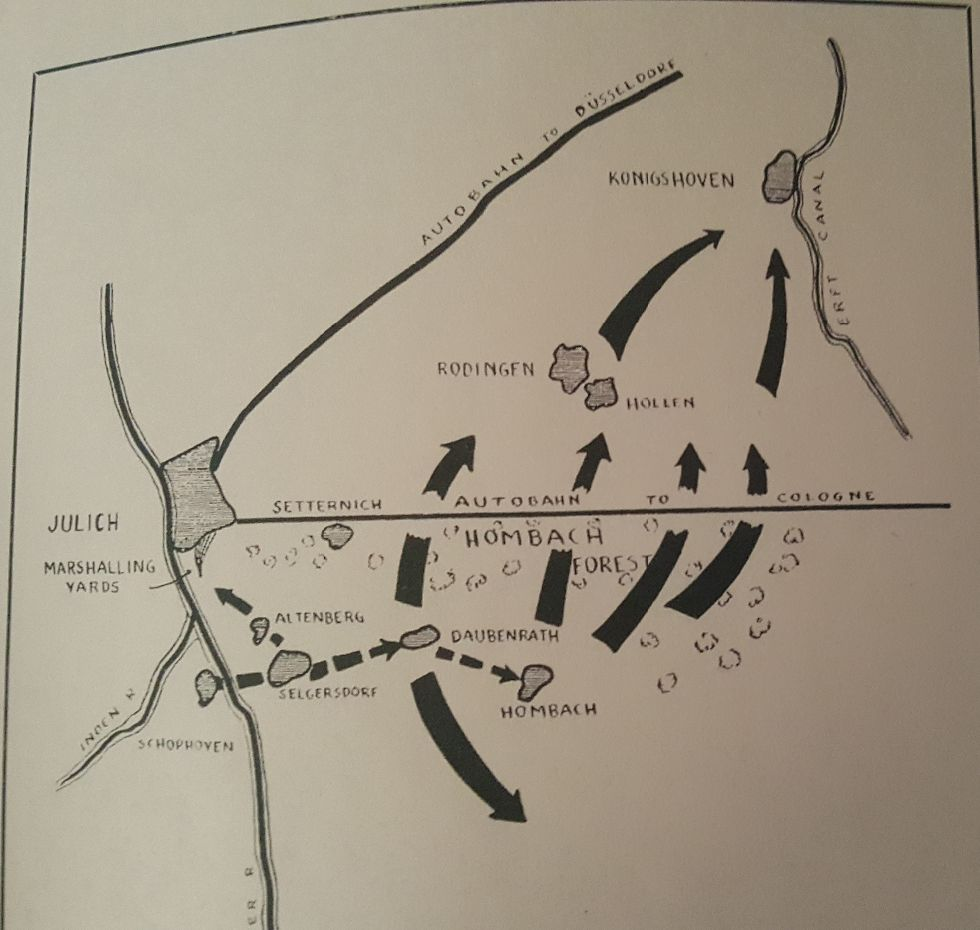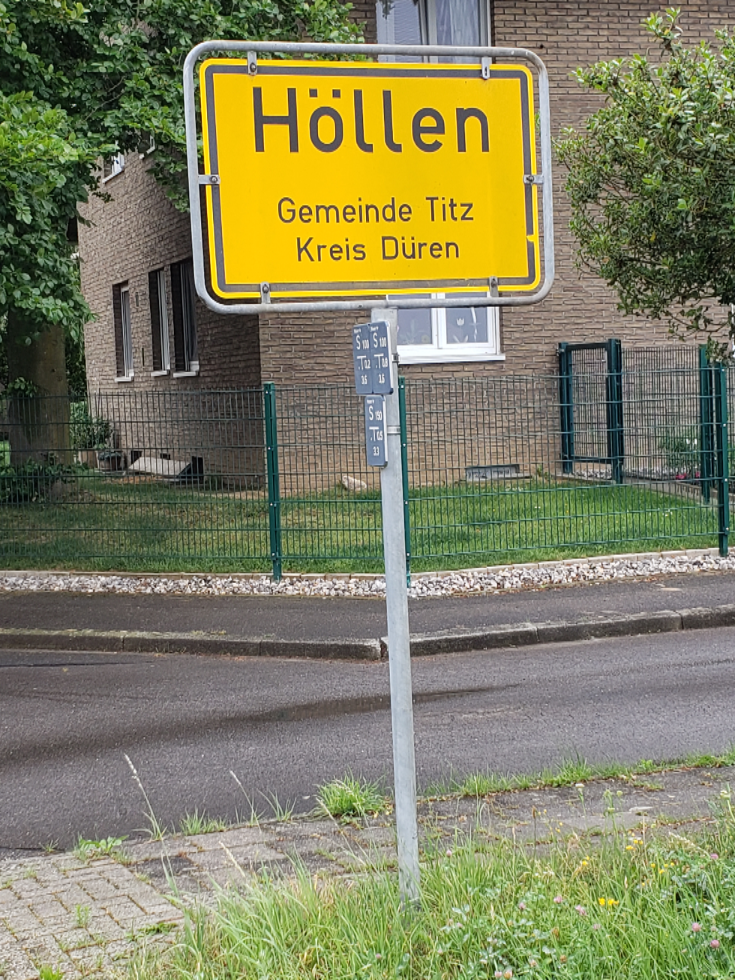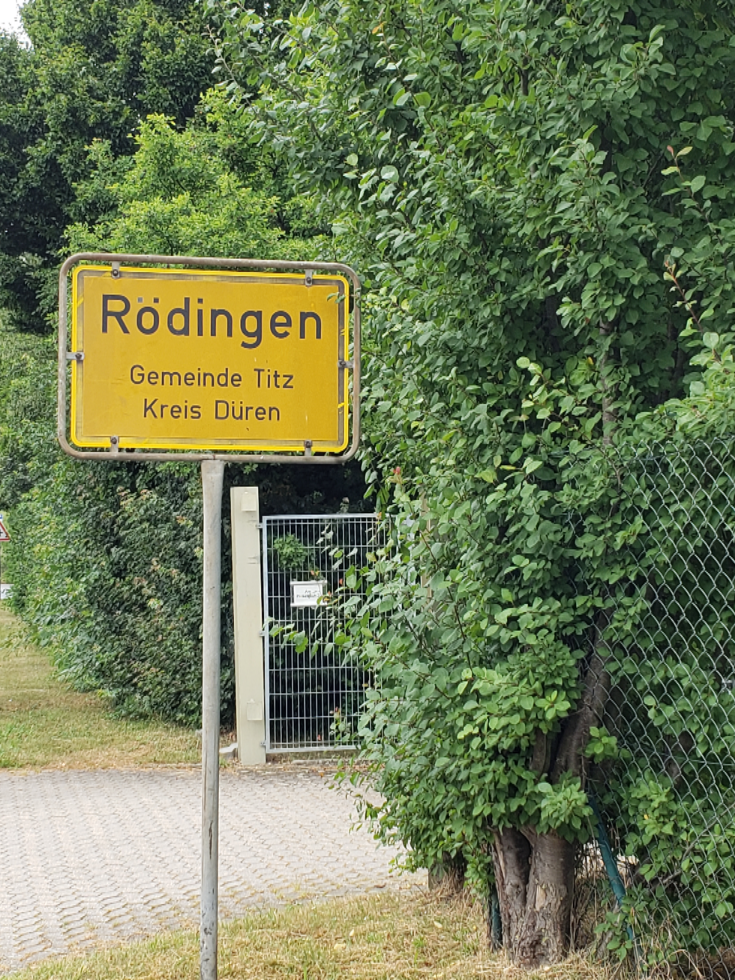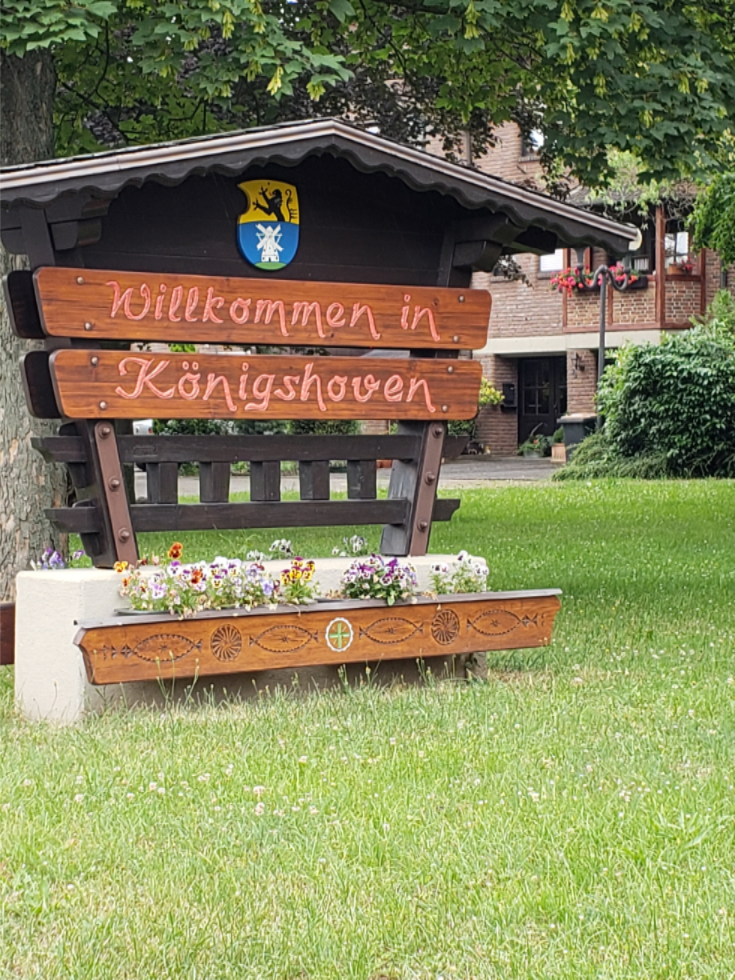In late January, the area of the Bulge has been retaken by the US Army through hard fighting. The 30th heard that they were to be reassigned, and rumors abounded about where they might go, including possibly going home. Instead, they were assigned to return north to the area near Aachen to take up the battle where they had left off before the Battle of the Bulge. Intelligence reports had the enemy building up on the northern Rhine.
They returned to Kohlscheid, Germany to a billet they had before, which they liked. There initial objective was to cross the Roer River, then on to the Rhine, with the ultimate objective of taking the Ruhr industrial area of Germany to cripple Germany's war production machine.
River crossing are one of the most difficult requirements for an army. It exposes the infantry to fire when they are vunerable, and the enemy knows this, so they build defenses to stop the advance. For the Roer River, the Germans blew dams above the crossing areas for the 30th Division, so the Roer River was in flood stage.
As Mark read the history of the 119th Infantry, he noted that the 119th stayed in Kerkrade, Holland for 2 days to wait for the Roer River to recede before making the crossing. We decided to stay in Kerkrade for one night, as we were returning to Brussels at the end of our trip. We randomly picked a hotel called the Abdij Rolduc. The Rolduc is a 12th century abbey that has been turned into a major conference center with 150 rooms. It was beautiful and historic. As we saw the facility, it dawned on us that it was very likely that the 119th stayed at this very same hotel prior to their Roer River crossing or at other times. Mark talked to the manager and he indicated that, in fact, this hotel was used by the American army during the war. He suggested that we stop by the library, as they have "annuals" for many years describing what occurred at the Abbey each year. Unfortunately, the library was closed, but they did send photos of the American army at the Abbey.
Here was the message they sent:
After a successful Roer River crossing, the 119th took several German cities across the Roer plain, including Selgersdorf, Daubenrath, Bambach, Hamachforreht, Dufferlich, Hollen, Rodigne, and Konigshoven. Below are photos of some of the street signs today. Also, I've attached a map of the area of the Roer River crossing and the towns they fought for. We spent a afternoon finding the crossing site and visiting the towns as they look today.
The next major objective on the drive through Germany was the crossing of the Rhine in March, 1945. As described, river crossings are difficult and full of danger. The Rhine is a much larger river than they had faced before. The US Navy was called in to provide the boats and expertise for this crossing. A system of "artificial moonlight" was deployed, a British invention. Huge spotlights were aimed at the clouds, which shined light into the enemy's eyes. Just like seeing a flashlight at night, one is partially blinded and it gives the holder of the light an advantage.
This is from the 119th's History, describing the Rhine crossing: The plan was simple. The Second Battalion (Dad's Battalion) would force a crossing, seize and hold a bridgehead; the Third Battalion would cross to expand it; and the First Battalion .would follow and continue the attack. The British on our left were to cross a Brigade of Marine Commandos just above Wesel, three miles north, while our paratroops were to be dropped inland to cut enemy communications.
The crossing of the Rhine went as a textbook crossing. Below are photos of the place where the 119th Regiment crossed. There is a beautiful bridge there now.
This ended our journey to follow the 30th Division and the 119th Regiment for this trip. The 30th advanced through Germany in April. Many battles were fought, with a major conflict at Magdeburg. We were not able to follow the final leg - we'll save that until next trip.
Dad said, as the Germans were surrendering, they would ask to be re-armed and join the Americans to fight the communist Russians.
After Magdeburg, the 30th halted their advance on the Elbe River. German troops continued to surrender to them, as Germans wanted to surrender to the Americans rather than the Russians. On May 5th, the 119th made contact with advance units of the Russian army, and the two great armies of WW2 were joined. They toasted (probably many times) and curiously looked at each other. The Americans had great provisions and excellent equipment. The Russians, in contrast, were poorly equipped and envious of the American supplies.
As a final note, the 30th probably will never get their due respect. Here is a quote from the 119th History that reflects their thoughts when they learned that the Americans would not attack Berlin:
When orders were received for the attack late on the second we were disappointed to learn that our objective was not Berlin, but the Elbe River. One soldier complained bitterly, "We do all the blocking and someone else gets to
carry the ball." They had made a similar comment after our drive across France into Belgium. They stated that "We were always the bridesmaid, but never the bride." We had been the work-horse of two armies, and were
doomed to end the war in the same role.
I hope that others will take some time to read about the 30th Division and the 119th Regiment. Their story is incredible.
